2023 Speakers
Education Lineup
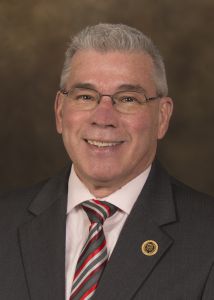 Dr. Jerry Hatfield
Dr. Jerry Hatfield
Retired USDA-ARS Laboratory Director and Plant Physiologist
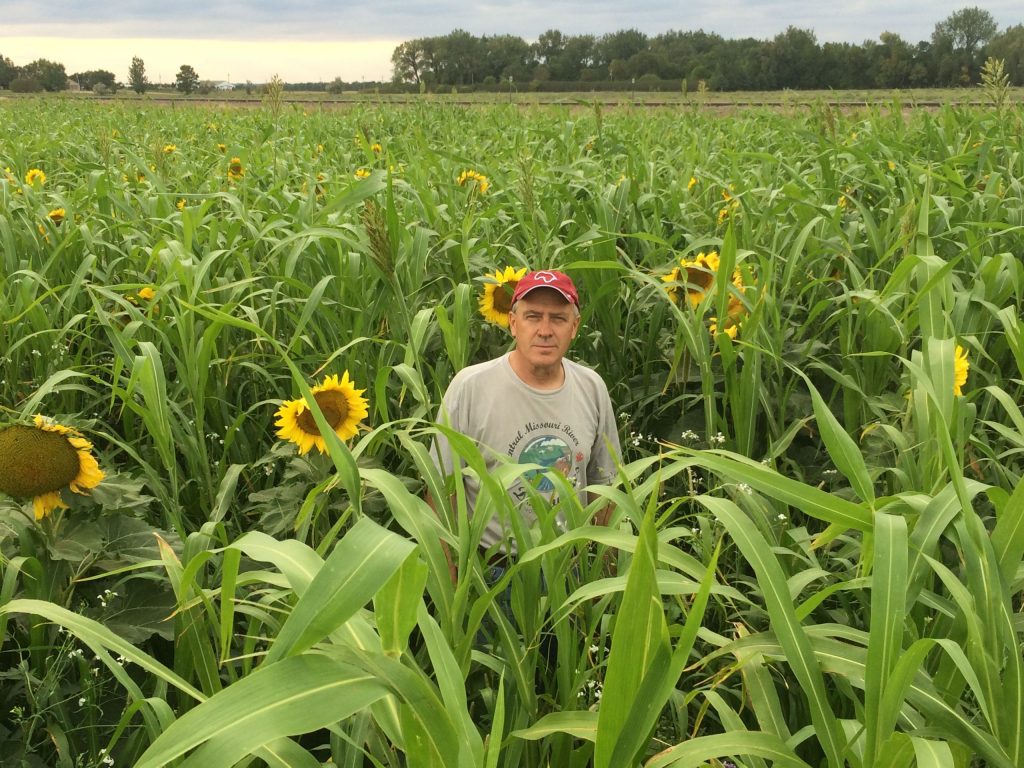
Jay Fuhrer
Conservationist – Menoken Farm – Burleigh County Soil Conservation District
Working at the Natural Resources Conservation Service/USDA from 1980 – 2020 out of Bismarck, North Dakota, Jay particularly enjoyed working from the pickup end gate on the field edge, with a spade and the client. Conservation planning one field at a time.
Currently, Jay spends his time supporting soil health efforts through the Menoken Farm. The Menoken Farm is a conservation demonstration farm and is Jay’s favorite place to work. Here, the 5 Soil Health Principles can be applied while monitoring plants, animals, and soils.
Jay continues to share the soil health principles and how healthy soil serves as a foundation for cropping systems, grazing systems, cover crops, wildlife, gardening, pollinators, insects, soil food web, and quality of life. His work in this field allows him – and others – to farm forever.
2023 Presentation: Rebuilding and Maintaining Life in the Soil
Summary: Rebuilding and maintaining life in the soil is directly linked to the longevity and reliability of future agriculture. Landscape simplification has been ongoing for generations fueled by loss of perennials and animal impact, combined with soil disturbance, residue removal, and monoculture crop production without cover crops. Symptoms of landscape simplification are evident and include reduced soil organic matter and infiltration, wind erosion, water erosion, salinity, water quality impacts, and high fossil fuel inputs.
CEU Offered: 0.5 Nutrient Management, 0.5 Crop Management, 0.5 Integrated Pest Management
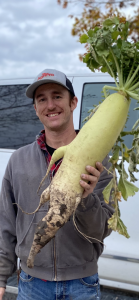
Macauley Kincaid
Farmer
Macauley Kincaid started farming when he was 18 years old. At 20 years old, Kincaid inherited his first 59 acres that were farmed conventionally until 2015. Kincaid is now a 28-year-old regenerative farmer who operates an 880-acre farm. The farm features a very diverse cropping system that includes 13 different cash crops that are all in a zero-till system. Cover crops are always grown between all of the cash crops. Over two-thirds of Kincaid’s acres are fenced and host a South Poll herd as well as custom grazing for around 100-plus different animals on cover crops. Kincaid’s beliefs are that the key to no-till is cover crops and the key to cover crops is cattle.
2023 Presentation: Cover Crops, Cattle and Cash Flow
Summary: Join this session if you want to learn how to increase profitability on your farm. Discussions will include cash crop management with cover crops and how to integrate livestock successfully on your row crop land.
CEU offered: 0.5 Crop Management
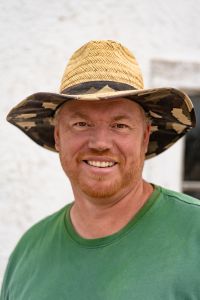 Roy Pfaltzgraff
Roy Pfaltzgraff
Farmer, Pfaltzgraff Farms, LLC
Roy Pfaltzgraff with his wife Barb and his parents operate a 2,000-acre dryland family farm, Pfaltzgraff Farms, LLC, south of Haxtun, Colorado. Roy’s father has always had a pioneering vision and spirit, but he could never imagine the farm as it is now. The farm has evolved from raising two to three crops a year to fourteen crops in 2022. While continuing to use commercial chemicals and fertilizers, Roy has created a diverse cropping rotation that minimizes these inputs while maximizing the benefits from inter-cropping, increased soil health, and biodiversity. Roy has integrated new techniques from seeding through harvest that minimizes specialty equipment while doing everything possible to increase soil health while conserving residue and moisture. Roy has been able to see improvements in the soil, the most notable is raising organic matter from the area’s average of less than 1% to a farm average of 2.5%.
2023 Presentation: Don’t Tell Me How To Do Soil Health (Farming in Arid Regions)
Summary: Farming in arid regions has its own challenges. The standard line on soil health requires cover crops and livestock to harvest it, but that is difficult to do on less than 15 inches of precipitation a year. There are ways to build soil health that goes against these common views built on diversity and continuous cropping.
CEU offered: 0.5 Soil and Water Management
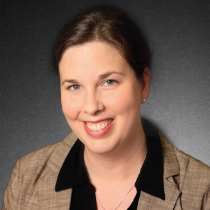 Trisha Jackson, Ph.D.
Trisha Jackson, Ph.D.
Director of Regenerative Agriculture, PrairieFood
Trisha hails from central Kansas, where she learned to value prairies and rural communities. Her educational and personal adventures took her around the world, where she admired diverse cultures, foods, landscapes, and agriculture. Through her graduate studies in soil science, environmental studies, and climatology, she came to understand how regenerative agricultural practices build healthy soil to create truly resilient communities brimming with nutrient-dense food, clean water, and plentiful wildlife. With these values in mind, she was pleased to join the PrairieFood team to help ensure that rich, fertile soil is the number one crop.
2023 Presentation: PrairieFood™- Get the Dirt on Your Soil
Summary: Transforming the World’s Waste Biomass into Revolutionary Micro-Carbon Products, PrairieFood facilitates moving carbon from the atmosphere back into soil where it belongs. Growers finally have a solution to maximize economic returns for plant and carbon crops while benefiting the environment and the fair profit necessary for farming communities simultaneously.
CEU Offered: 0.5 Nutrient Management
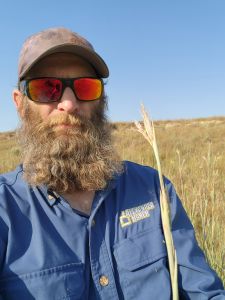 Brian Alexander
Brian Alexander
Host of the Ranching Reboot Podcast
Brian Alexander is part owner of Alexander Ranch located in Barber County, Kansas, just south of Sun City near the old community of Deerhead. The ranch is primarily a custom-grazing operation with over 60 paddocks across 7,000 acres in the Red Hills. The ranch is all native range, the last 500 acres of farm ground were planted back to native grass and forbs in the mid-80s. Alexander has been developing smaller framed, forage efficient, low input cattle that can live on salt and scenery. His father, Ted, is also part-owner of the ranch and between the two of them they have five trips through the Ranching for Profit school, and both would say that the school is well worth the money to go to. Brian has also been through the entire Holistic Management training course.
Alexander Ranch received the 2019 Kansas Leopold Conservation Award for removing invasive eastern red cedar trees and improving water quality in the ranch’s creeks and liberating new springs. The ranch also won the 2021 Citizen’s Conservation Achievement Award from the central mountains and plains section of the Wildlife Society.
Brian hosts the Ranching Reboot Podcast and is active on social media under the name “Red Hills Rancher.”
2023 Presentation: Grazing All Year – What’s Your Plan?
Summary: TBD
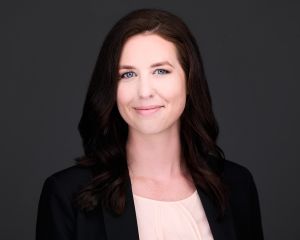
Cassidy Million, Ph.D.
Director of Ag Science, Heliae® Agriculture
Cassidy Million, PhD, serves as the director of ag science for Heliae Agriculture and is responsible for overseeing agronomy training and product performance trials. Before joining Heliae Agriculture, Million served as the senior agriculture research scientist at Monty’s Plant Food. Before this role she held a postdoctoral position with the United States Department of Agriculture-Agricultural Research Service crop production and pest control research division where she researched non-host resistance in wheat and barley. Prior, she performed research in the Integrated Plant Protection Unit of Swedish University of the Agricultural Sciences’ Plant Protection Biology department. She obtained her bachelor’s in biology from Indiana University Southeast and her master’s in plant pathology from Ohio State University.
2023 Presentation: Healthy Soil Yields Healthy Crops for Healthy Profits
Summary: At the root of every healthy crop, a thriving community of soil microbes exists creating an ideal environment in the soil and promoting plant vigor—but today 75% of these microbes, such as bacteria and fungi, are starving, thus dormant. Part of their survival strategy is to lie dormant until a proper food source is delivered to them to thrive again. Cassidy Million will share the power of feeding your soil microbiome a balanced, nutrient-rich meal, like PhycoTerra, to “wake up” dormant soil microbes to perform important functions like improving soil texture, soil quality, water holding capacity, and nutrient uptake—all to support improved crop performance and return on investment. Growers will glean valuable information on how to implement a holistic approach to improving soil health on their farm with regenerative agricultural practices that impact the chemical, physical and biological properties of their soil.
CEU Offered: 0.5 Soil and Water Management
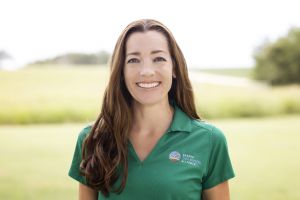 Jennifer Simmelink
Jennifer Simmelink
Coordinator, Kansas Soil Health Alliance
Jennifer Simmelink serves as the coordinator of the Kansas Soil Health Alliance—a farmer and rancher led nonprofit organization with the mission of improving and protecting Kansas soil through farmer and rancher led education and resources. Along with her eight-member board and partnering organizations, she has led efforts to develop tools and host events that provide practical information that can be used on farms and ranches in all 105 Kansas counties. Jennifer and her husband, Chad, and their three children live in Jewell County, on a mixed crop and livestock operation. Their farm has been 100% no-till since 2003, began implementing cover crops in 2005, and maintains a commitment to conservation and improving soil health. Jennifer and the Kansas Soil Health Alliance see things from the grower’s perspective; the need to achieve profitability in an ecologically sound manner and to regenerate and restore soil productivity for future generations.
2023 Panel Moderator
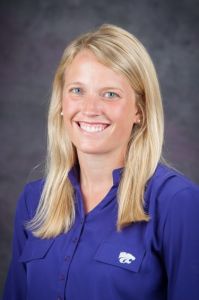 Kari Bigham
Kari Bigham
Teaching Assistant Professor, Kansas State University
Kari Bigham is a Teaching Assistant Professor in the Carl and Melinda Helwig Department of Biological & Agricultural Engineering department at Kansas State University. Coming from a corn and soybean farm in northeast Kansas, Kari plans to spend her career focusing on ways to manage and restore degraded streams that drain agricultural landscapes. Working with a combination of Kansas state agencies, engineering consultants, and landowners, Kari has spent the last eight years monitoring streambank stabilization systems to improve design and inform adaptive management strategies. Additionally, Kari is a licensed engineer with experience designing streambank stabilization and stream restoration systems, as well as water quality and quantity BMPs in both agricultural and urban settings. Kari lives adjacent to the mighty Kaw River near the capitol of Kansas with her husband, Dan, and their two kids.
2023 Presentation: From Sky to Stream: A Systems Approach to Water Management
Summary: Engineers and land managers have spent decades developing and implementing methods to “control” water for drainage, storage, and erosion reduction, rarely considering the cumulative impact these approaches may have on water quality and availability for downstream users. This session will cover the importance of understanding the water cycle and demonstrate both the economic and ecological benefits of working with natural surface water processes, rather than attempting to control them. Similar to the farm-to-fork concept, this session will track surface water as it falls from the sky to our fields and eventually in our streams. Following this holistic overview of the water cycle, ecologically-based, field- to stream-scale water management techniques for storage, erosion reduction, and water quality improvement will be discussed.
CEU Offered: 0.5 Soil and Water Management
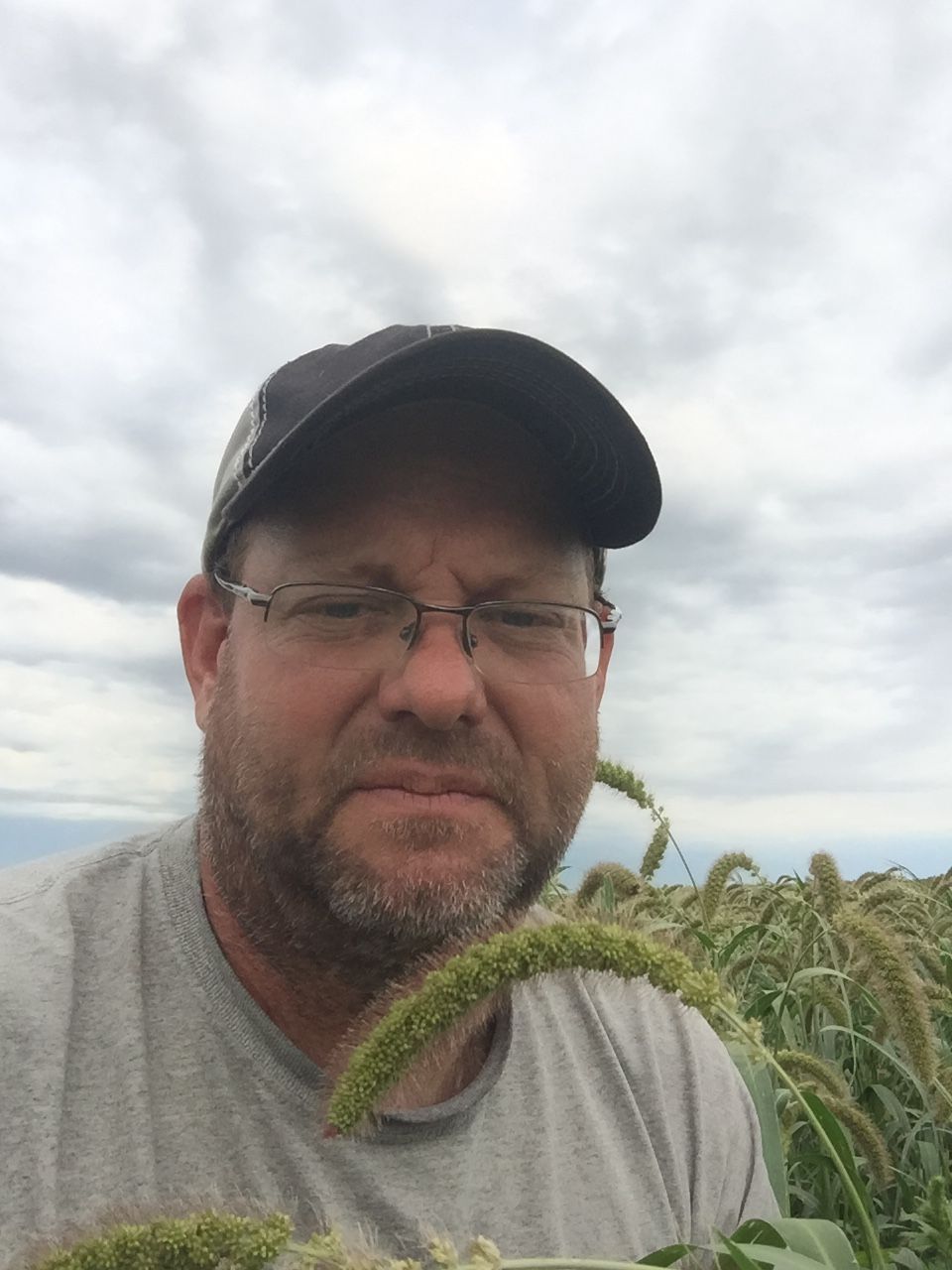
Brice Custer
Custer Farms LLC
Brice Custer is the owner of Custer Farms LLC. Farming in a dryland environment, Custer has implemented the principles of soil health and is focusing on profitability not just yields
2023 Presentation: How We Went From Losses to Profits
Summary: Custer will discuss why and how he took a look at his farm’s bottom line to find out what crops were costly and which ones were profitable.
CEU Offered: 0.5 Professional Development
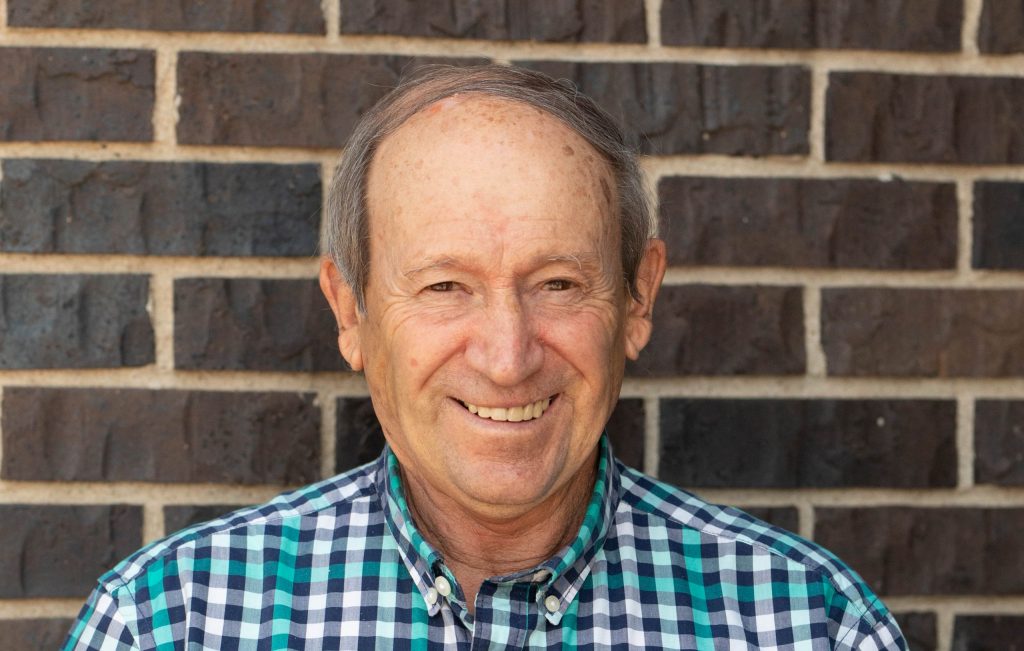
Willie Pretorius
Soil Health Consultant – Ward Laboratories Inc
Willie Pretorius received his bachelor’s and master’s from the Universities of Pretoria and Stellenbosch in 1966 and 1970 respectively. He majored in fruit science, horticulture and plant physiology. His background is agricultural research, managing food companies, and soil health. His major interest is getting to understand how natural prairie and forest ecosystems function and how to incorporate these into present day crop production.
2023 Presentation: Soil Health Gap Analyses: Quantifying Damage to Soil Health
Summary: Commercial crop production practices progressively damage soil functions driven and maintained by soil health. The Soil Health Gap analyzes and quantifies the extent of these parameters evaluated against the original non-cultivated virgin status.
CEU offered: 0.5 Crop Management
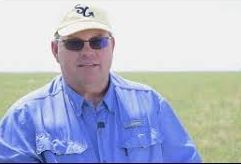 Chris Grotegut
Chris Grotegut
Farmer, Rancher, Veterinarian
Chris Grotegut is a product of the southern High Plains. He began farming on a mixed dry land and irrigated farm raising grain, forages, and livestock during his last year of high school. He received his bachelor’s and his doctorate of veterinary medicine from Texas A&M University in 1995. Currently he operates a veterinary practice and has significantly expanded the family agricultural business. Business focus is moving from row crop production to adaptive grazing using cattle and sheep. Grotegut is very active in discussing water conservation as an agriculture representative on the Llano Estacado Water Planning group for Texas. He and his family’s operation received a Lone Star Land Steward Award in 2022 from the Texas Parks and Wildlife.
2023 Presentation: Water Use and Aquifer Recharge, a Fine Balance.
Summary: The goal for this session is to provide an example of adaptation and experimentation. People of the Plains that adopt regenerative principles on their farms and ranches provide hope for farms, ranches, and communities.
CEU Offered: 0.5 Soil and Water Management
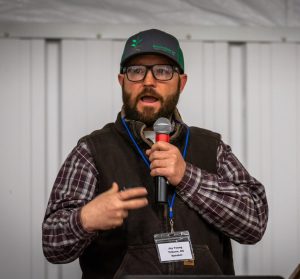 Jay D. Young
Jay D. Young
Co-Owner of Young Red Angus
Jay Young along with his father, Jerry, are the owners and operators of Young and Son Farms and Young Red Angus. They grow wheat, corn and milo and graze cattle on cover crops. In 2020 they started creating their own Johnson Su Bioreactors. Through the use of the Johnson Su compost, they have eliminated synthetic phosphate fertilizer and are in the process of cutting nitrogen use by 50% and hope to be down to applying less than 50 pounds of nitrogen fertilizer on all of their farm ground by 2023. mpost is different — mature compost has complex fungal communities and a balance of healthy bacteria, nematodes, and worms that can be used as potting soil and made into a “tea” to apply on row crops. The compost or tea acts as inoculant for the soil. They have eliminated synthetic phosphate fertilizer and are in the process of cutting Nitrogen use by 50% and hope to be down to applying less that 50lb of Nitrogen fertilizer on all of their farm ground by 2023. For more information on their cow/calf operation you can check out their website at YoungRedAngus.com. For videos of what they are doing with rotational grazing and johnson Sue bioreactor search for his videos on YouTube
2023 Presentation: Going Deeper Into Regenerative Ag With Compost and Interseeding Cover Crops
Summary: Understanding why we need compost extract, how to make compost extract, and benefits to interseeding cover crops that we may not be focused on.
CEU Offered: 0.5 Nutrient Management
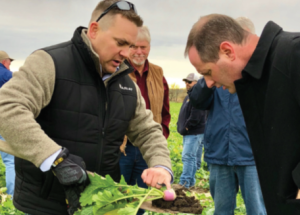 Andrew Lyon
Andrew Lyon
Director of Conservation – Kansas Department of Agriculture
Andrew Lyon is the director of conservation for the Kansas Department of Agriculture. He grew up on a family ranching operation east of Emporia then attended Kansas State University and Oklahoma State University. He has worked on water quantity, water quality, and land conservation issues throughout his career with the State of Kansas.
2023 Presentation: Why Soil Health Is Important for Kansas (and the World)
Summary: Lyon will talk about why improving soil health is imperative to addressing natural resource concerns, particularly water resource challenges, in Kansas. He will touch on programs and opportunities to support producers in transitioning to Soil Health Management Systems.
CEU Offered: 0.5 Professional Development
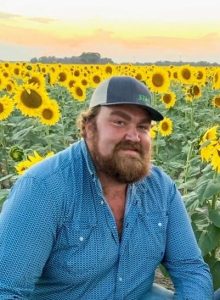 Austin Schweizer
Austin Schweizer
5th Generation Farmer, Sterling, KS
Austin Schweizer is a 5th generation farmer from Sterling, KS. After graduating from Fort Hays State University (FHSU) in 2016 with a degree in agronomy he returned home to his family farm. Austin started adopting regenerative practices on the acres he farmed. Working with his family’s farm they have continued to incorporate and adopt regenerative practices in their operation. While the last year has been challenging with the drought, Austin has seen how the sustainable practices have helped utilize water better, provide feed for livestock with cover crops, and continue to help reduce fertilizer cost. These practices have even helped bring some bright spots in the year from finding gourds he planted in a cover crop field that had survived the drought, watching and moving cattle on cover crop, and getting to see bright sunflower emerge in a feed blend. Austin enjoys spending time with his family and working on equipment.
2023 Panelist
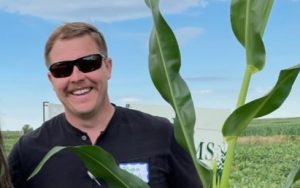 Ryan O’Neill
Ryan O’Neill
Tuttle Creek Reservoir WRAPS Coordinator
Ryan O’Neill is the Tuttle Creek Watershed Coordinator for the Kansas Watershed Restoration Protection Strategy. He offers a framework that engages citizens and other stakeholders in a teamwork environment aimed at protecting and restoring Kansas watersheds. Ryan is a graduate of Kansas State University with a B.S. degree in Animal Science & Industry with an emphasis in business. Along with his work as a watershed coordinator he is also a certified crop advisor and 4th generation rancher near Randolph, KS and supports his family’s operation near Dodge City, KS. Ryan believes that as a service provider and regenerative producer he can help growers navigate local, state, and federal program resources to help them achieve their goals.
2023 Panelist
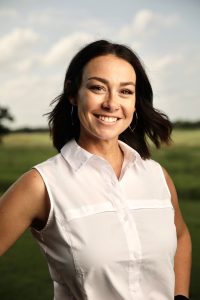 Caitlin Hebbert
Caitlin Hebbert
Consultant, Noble Research Institute
Caitlin works as a grazing livestock consultant at the Noble Research Institute in Ardmore, Oklahoma, collaborating with researchers and ranchers to create solutions and educational opportunities for regenerative graziers.
2023 Panelist
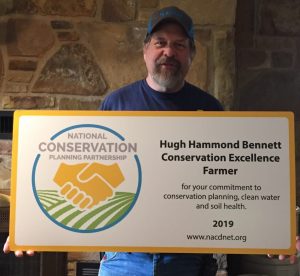 Rod Vorhees
Rod Vorhees
Chairman of Kansas Department of Agriculture’s State Conservation Commission (SCC) and Chairman of Wilson County Conservation District
For nearly three decades, awareness of soil health and of implementing conservation practices to encourage healthier soil have been promoted at both the local and the state level by Rod Vorhees. Vorhees is the chairman of the Wilson County Conservation District, and he serves as the chairman of the Kansas Department of Agriculture’s State Conservation Commission (SCC). He has provided leadership, and first-hand knowledge of working on the land, during sessions with soil carbon organization representatives and through contact with soil health organizations at forage plots and land health monitoring locations. Rod Vorhees’ family’s ranching operation, Lazy VJ Farms, located near Coyville, was recognized with the 2017 Kansas Leopold Conservation Award.
2023 Panelist